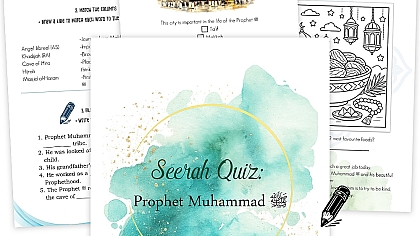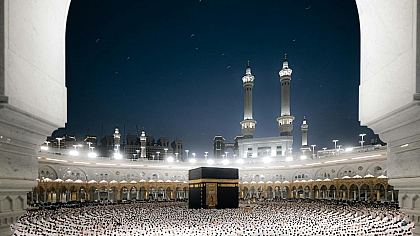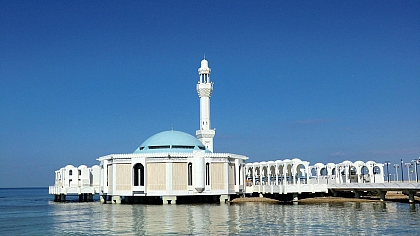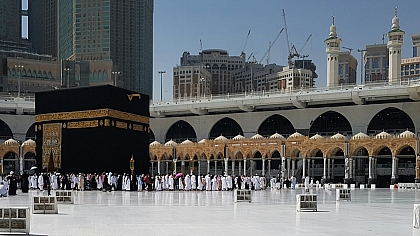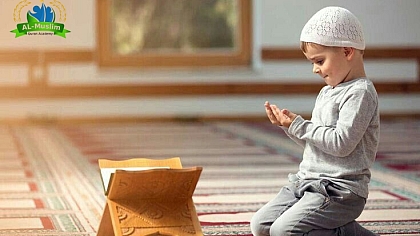
Salah: A Guide to the Five Daily Prayers in Islam
For Muslims, prayer is like a daily meeting with the Creator. It is a direct conversation that breaks through the noise of the world. The five daily prayers, known as Salah, are one of the five core pillars of Islam. They are not just rituals; they are acts of worship that strengthen the bond between a person and Allah.
The Anchor of a Muslim's Day: Understanding the Five Daily Prayers
Salah is a Muslim’s spiritual anchor. It provides structure to the day, a constant reminder of faith, and a source of peace and discipline. This practice brings both spiritual peace and physical well-being, connecting the soul and body in worship.
The Five Prayers and Their Times
Each of the five prayers has a specific time window, following the sun’s movement across the sky. This rhythm connects a Muslim’s day to the natural world and the signs of Allah’s creation.
- Fajr: The dawn prayer, performed after the first light appears but before sunrise. It marks the beginning of the day with remembrance of Allah.
- Dhuhr: The midday prayer, performed after the sun has passed its highest point. It is a pause in the middle of a busy day to refocus.
- Asr: The afternoon prayer, performed in the late afternoon. It is a chance to seek strength and patience before the day ends.
- Maghrib: The evening prayer, performed just after the sun has fully set. It is a moment of gratitude for the day’s blessings.
- Isha: The night prayer, performed after the twilight has disappeared. It offers a time for reflection and peace before sleep.
Performing each prayer on time is a priority, as it shows discipline and obedience to Allah’s command.
Why Prayer Matters: More Than Just Words
The Quran and the teachings of Prophet Muhammad (peace be upon him) emphasize the deep importance of Salah.
The Quran says:

This verse shows that prayer is a shield. It protects a person from wrong actions by constantly reminding them of Allah’s presence.
The Prophet Muhammad (peace be upon him) said:

This hadith tells us that prayer is the foundation of a Muslim’s deeds. Its quality affects everything else in life.
The Posture of Prayer: Finding Meaning in Movement
Islamic prayer is a full-body experience. Each position has a meaning, taking the worshipper on a physical and spiritual journey.
- Standing (Qiyam): This is a position of respect and readiness to speak with Allah.
- Bowing (Ruku): This is an act of praising Allah’s greatness and showing humility.
- Prostration (Sujood): This is the highest form of submission. Placing one’s forehead on the ground is the ultimate symbol of surrendering to Allah’s will. It is the moment a believer is closest to their Creator.
- Sitting (Jalsa): A moment of pause to reflect and ask for forgiveness and blessings.
These movements make Salah a form of mindful meditation, combining spiritual focus with gentle physical exercise.
The Gifts of Consistent Prayer: For the Soul and Body
The benefits of praying five times a day are both spiritual and physical.
Spiritual Benefits:
- A Constant Connection: Prayer is a direct line to Allah, offering comfort, guidance, and a place to seek help.
- Inner Peace: The rhythmic recitation and focus provide a deep sense of calm and tranquillity, reducing stress and anxiety.
- Moral Compass: Regular prayer acts as a shield, as the Quran says, preventing a person from falling into wrongdoing by regularly reminding them of their purpose.
Physical Benefits: The physical movements of prayer have been compared to a gentle form of exercise. Studies have suggested they can offer several health advantages:
- Improved Flexibility: The repeated motions of bowing and prostrating can increase joint flexibility and muscle strength.
- Better Circulation: The changes in posture encourage healthy blood flow throughout the body.
- Reduced Stress: The meditative nature of prayer can lower heart rate and reduce cortisol, the stress hormone.
- Aid in Digestion: The gentle pressure on the abdomen during prostration can aid the digestive process.
Making Prayer a Steady Part of Your Life

It is normal to face challenges in being consistent with prayer. A busy schedule, lack of concentration, or feeling tired can make it difficult.
Here are some simple tips to help:
- Understand the Meaning: Learn the translation of what you are saying. This makes the prayer a heartfelt conversation, not just empty words.
- Start Small: If five prayers seem overwhelming, focus on establishing one or two consistently first, then gradually add the others.
- Find a Prayer Buddy: Partner with a friend or family member to remind and encourage each other.
- Use Technology: Set phone reminders for prayer times or use apps that provide accurate prayer timings and alerts.
- Create a Dedicated Space: Have a clean, quiet corner in your home for prayer to minimize distractions.
Remember, the goal is progress, not perfection. Allah appreciates the constant effort.
A Journey of a Thousand Steps Begins with One Prayer
The five daily prayers are a gift. They are a built-in system for success, peace, and purpose. They are not a burden but a break—a chance to drop everything and reconnect with what truly matters.
Do not be discouraged if your focus wavers or you miss a prayer. The door to repentance is always open. The next prayer is a new opportunity to start again.
What is one small step you can take today to deepen your connection with your prayers?
Frequently Asked Questions
What if I miss a prayer? Life happens. If you miss a prayer, make it up as soon as you remember. Allah is understanding and merciful. The important thing is to have the intention to be consistent.
Do I have to pray in Arabic? Yes, the recitation of the Quran during prayer is done in Arabic to maintain unity and preserve the original words of revelation. However, you can make your personal supplications (dua) in any language you want.
Can I pray at work or school? Yes. Islam makes it easy to pray anywhere that is clean. You can find a quiet corner, an empty room, or even use a prayer room if one is available. The prayer itself only takes a few minutes.
Why do Muslims pray facing Mecca? Muslims face the Kaaba in Mecca, Saudi Arabia, during prayer. This direction (Qibla) unites all Muslims around the world in worship, symbolizing their unity and devotion to one God.



